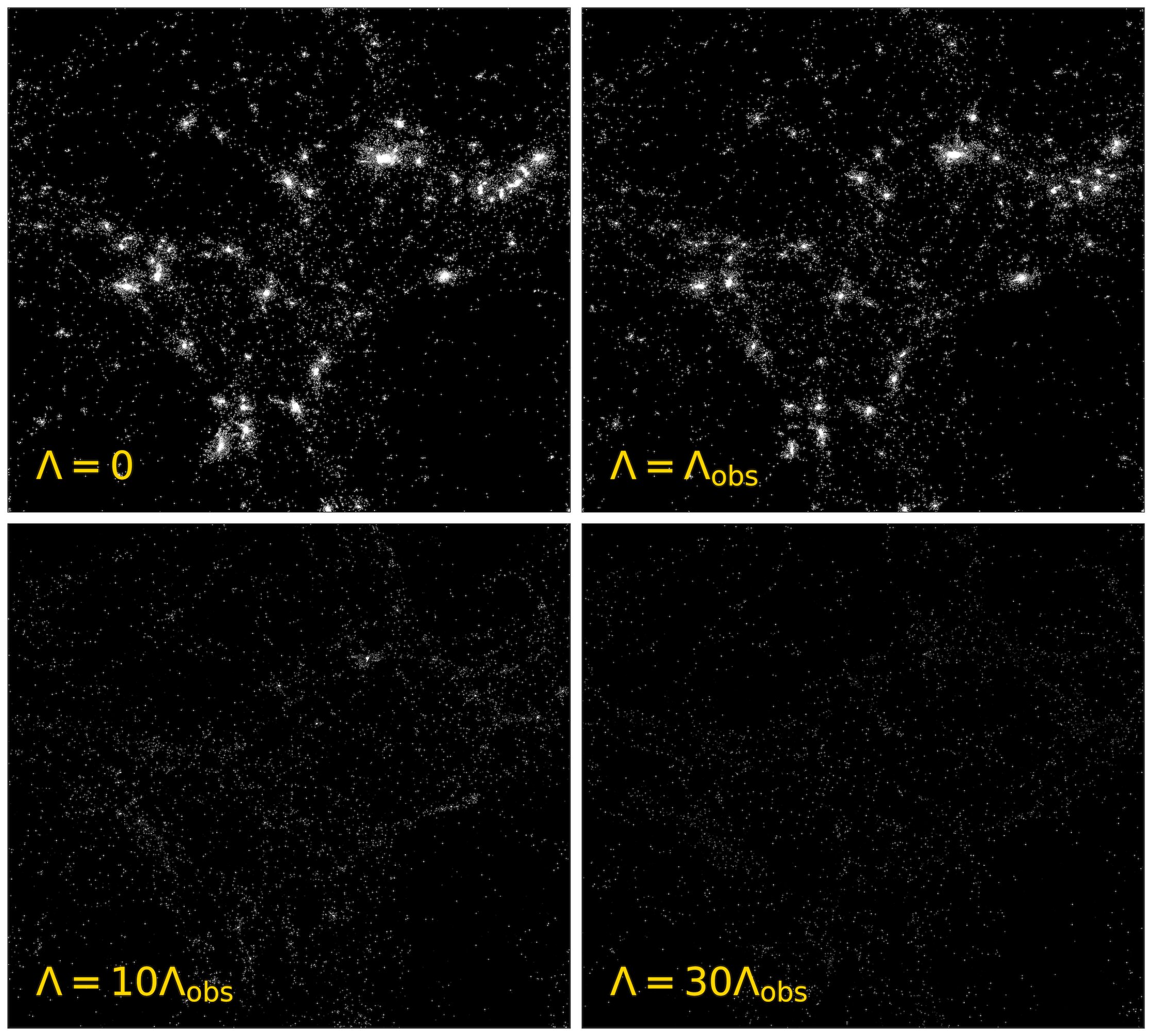The probabilities of clever life rising in our universe—and in any hypothetical ones past it—will be estimated by a brand new theoretical mannequin which has echoes of the well-known Drake Equation.
This was the formulation that American astronomer Dr. Frank Drake got here up with within the Sixties to calculate the variety of detectable extraterrestrial civilizations in our Milky Approach galaxy.
Greater than 60 years on, astrophysicists led by Durham College have produced a special mannequin which as a substitute focuses on the situations created by the acceleration of the universe’s growth and the quantity of stars fashioned.
It’s thought this growth is being pushed by a mysterious pressure known as darkish vitality that makes up greater than two thirds of the universe.
What’s the calculation?
Since stars are a precondition for the emergence of life as we all know it, the mannequin might subsequently be used to estimate the likelihood of producing clever life in our universe, and in a multiverse situation of various hypothetical universes.
The brand new analysis doesn’t try and calculate absolutely the variety of observers (i.e. clever life) within the universe however as a substitute considers the relative likelihood of a randomly chosen observer inhabiting a universe with specific properties. The examine has been printed in Month-to-month Notices of the Royal Astronomical Society.
It concludes {that a} typical observer would anticipate to expertise a considerably bigger density of darkish vitality than is seen in our personal universe—suggesting the substances it possesses make it a uncommon and weird case within the multiverse.
The method introduced within the paper includes calculating the fraction of atypical matter transformed into stars over your entire historical past of the universe, for various darkish vitality densities.
The mannequin predicts this fraction can be roughly 27% in a universe that’s best at forming stars, in comparison with 23% in our personal universe.
This implies we do not stay within the hypothetical universe with the very best odds of forming clever life varieties. Or in different phrases, the worth of darkish vitality density we observe in our universe is just not the one that will maximize the probabilities of life, in keeping with the mannequin.
Darkish vitality’s affect on our existence
Lead researcher Dr. Daniele Sorini, of Durham College’s Institute for Computational Cosmology, mentioned, “Understanding darkish vitality and the affect on our universe is likely one of the greatest challenges in cosmology and elementary physics.
“The parameters that govern our universe, together with the density of darkish vitality, might clarify our personal existence.
“Surprisingly, although, we discovered that even a considerably greater darkish vitality density would nonetheless be suitable with life, suggesting we could not stay within the most probably of universes.”
The brand new mannequin might permit scientists to grasp the results of differing densities of darkish vitality on the formation of constructions within the universe and the situations for all times to develop within the cosmos.
Darkish vitality makes the universe develop sooner, balancing gravity’s pull and making a universe the place each growth and construction formation are potential.
Nevertheless, for all times to develop, there would should be areas the place matter can clump collectively to type stars and planets, and it will want to stay steady for billions of years to permit life to evolve.
Crucially, the analysis means that the astrophysics of star formation and the evolution of the large-scale construction of the universe mix in a refined technique to decide the optimum worth of the darkish vitality density wanted for the technology of clever life.
Professor Lucas Lombriser, Université de Genève and co-author of the examine, added, “Will probably be thrilling to make use of the mannequin to discover the emergence of life throughout totally different universes and see whether or not some elementary questions we ask ourselves about our personal universe should be reinterpreted.”
Drake equation defined
Dr. Drake’s equation was extra of a information for scientists on find out how to go about trying to find life, slightly than an estimating software or critical try to find out an correct end result.
Its parameters included the speed of yearly star formation within the Milky Approach, the fraction of stars with planets orbiting them and the variety of worlds that might probably help life.
By comparability, the brand new mannequin connects the speed of yearly star formation within the universe with its elementary substances, such because the aforementioned darkish vitality density.
The examine concerned scientists on the College of Edinburgh and the Université de Genève.
Extra info:
Daniele Sorini et al, The affect of the cosmological fixed on previous and future star formation, Month-to-month Notices of the Royal Astronomical Society (2024). DOI: 10.1093/mnras/stae2236. educational.oup.com/mnras/article … .1093/mnras/stae2236
Supplied by
Royal Astronomical Society
Quotation:
A formulation for all times? New mannequin calculates probabilities of clever beings in our universe and past (2024, November 12)
retrieved 12 November 2024
from Yfr
This doc is topic to copyright. Other than any truthful dealing for the aim of personal examine or analysis, no
half could also be reproduced with out the written permission. The content material is offered for info functions solely.
